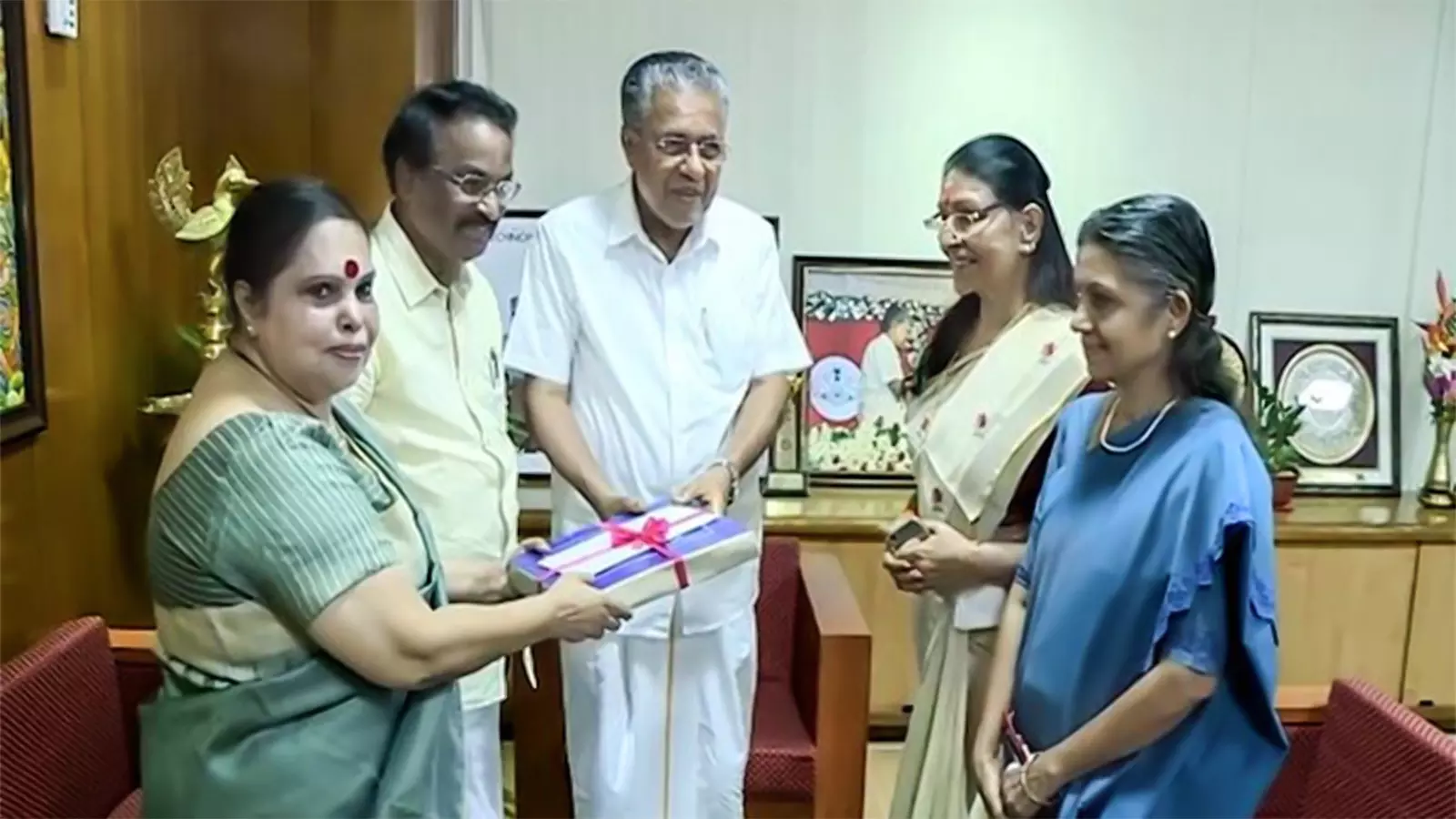
The Hema Commission report was submitted by Justice Hema (left) to Kerala Chief Minister Pinarayi Vijayan (centre) in December 2019. File photo
WCC concerned over attempts to discredit survivors and Hema panel report
It's unfortunate blame is being shifted onto the very brave women who spoke about their traumatic experiences in Malayalam film industry, says WCC

The Women in Cinema Collective (WCC) has expressed concerns over attempts to discredit the Hema Committee Report following reports that several complainants were unwilling to testify before the Special Investigation Team (SIT) set up in its aftermath.
In a statement, the WCC termed it unfortunate that the blame was being shifted onto the very women who had courageously spoken to the committee about their traumatic experiences in the Malayalam film industry.
“Many of these women gave sworn statements to the committee in good faith, hoping that their testimonies would help frame better policies and understanding of the challenges women face in the industry,” it said.
Reliving the pain
After the report was submitted, the government constituted an SIT which began summoning the women again—both over the phone and in person—for evidence collection.
WCC pointed out that most of these incidents occurred years ago and the survivors, having processed their trauma and attempted to move on, were not ready to relive the pain through legal battles once more.
“Their unwillingness to pursue legal proceedings does not make their accounts false, nor does it mean they are retracting their statements or that they are guilty of exaggeration,” the statement clarified.
Brave women
The collective said that expecting survivors to “prove” gender discrimination in the film industry through court cases betrays a lack of understanding of women’s lived experiences. “We salute every brave woman who spoke before the Hema Committee. Their words continue to hold power,” the WCC affirmed.
The group also reminded the public that several women had shared their experiences publicly when the High Court published the Hema Report, with some of them choosing to pursue further legal and institutional action. “From the beginning, our position has been that the choice to speak out or pursue a case must rest solely with the survivor,” it reiterated.
Systemic reforms
WCC noted that several systemic reforms had already taken shape in the state due to their advocacy—including a state scheme to financially support women directors, gender-focused festivals by the Kerala State Chalachitra Academy, and skill training for women technicians. These initiatives, they said, were informed by discussions led by women in the industry.
Further, the WCC petitioned the High Court to ensure the formation of Internal Committees (ICs) within film sets and institutions—resulting in a landmark judgment.
“These interventions are not substitutes but complementary to the broader gender-sensitive policy recommendations made by the Hema Committee,” the statement clarified.
The WCC emphasised that Kerala now has capable IAS officers championing progressive labour policies, and genuine efforts are underway to implement ICs across the film sector. However, the Hema Committee report goes deeper, pushing for a long-term, gender-equitable cinema policy and a tribunal to handle industry grievances.
Gender-equitable film policy
Describing the Hema Report as a turning point in the fight for women’s rights in Malayalam cinema, the WCC stated that it addresses far more than just safety and representation—it outlines core policy shifts necessary for systemic change. The WCC has submitted detailed recommendations to the Kerala State Film Development Corporation (KSFDC), based on both the Hema Report and prior policy documents.
“We urge the government to formally adopt a gender-sensitive cinema policy and to move ahead with setting up a tribunal to address grievances, as recommended in the Hema Report. Otherwise, the crores spent on the committee will go to waste,” the statement concluded.
Next Story

